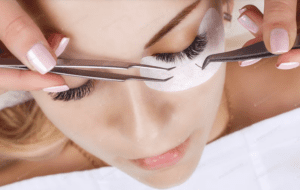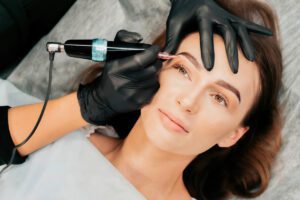
Understanding Your Acne: The Ultimate Guide to Clear Skin Care Tips and Tricks

Understanding Your Acne: The Ultimate Guide to Clear Skin Care Tips and Tricks
Acne is a common skin concern that has affected every single person at least once in their lifetime. A major misconception is that acne is age-related and it affects only teenagers.
The truth is that acne is a multifactorial skin condition and it can happen to anyone at any time. Whether it is a single pimple that pops up at the most inconvenient time or generalized hormonal acne, these red and painful bumps can really affect our self-esteem and confidence.
This article aims to debunk some acne myths, help you understand and treat your acne and answer some frequently asked questions.
What causes Acne?
Whether it’s teen or adult acne, understanding what causes them is crucial. There are several factors that cause acne and different types of acne require different treatment approaches.
- Non-inflammatory acne includes blackheads and whiteheads. These are not considered proper acne and they are an esthetic issue more than medical.
- Blackheads also known as open comedones, are tiny black bumps that are formed from the solidification of oil and dead skin cells inside the pores. They get their black color due to oxidization in contact with the air.
- Whiteheads also known as closed comedones, are tiny ‘under the skin bumps’ formed by oil trapped under a lining of dead skin cells.
- Inflammatory acne is the ‘real acne’ and is considered a real medical issue. Depending on their size, inflammation and pain level they can be papules (smaller), pustules and cystic acne.
- Hormonal acne. Hormones are one of the main causes of acne. When people hear hormonal acne, the first thing that goes into their minds is the typical image of teen acne. And it’s true, teen acne is mainly due to the fluctuation of hormones. But there are other causes when hormones cause pimples: menstrual cycle acne, menopause acne, stress acne etc. Lifestyle, food, smoking, stress, the lack of sleep affects our hormones and may be manifested in pimples.
- Oil production. The other main factor that causes acne is the overproduction of sebum. Oily skin type is genetically determined, but hormones and our skincare products can increase oil production. Oil gets trapped in the pores and together with dead skin cells and bacteria, it can cause painful pimples.
- Skin barrier. This may be a less-known cause, but a broken skin barrier is often manifested with pimples and dryness. The skin barrier can be damaged by harsh skincare products, cold weather and even hormones.
It is crucial to adhere to some maintenance recommendations to increase the longevity of lash extensions. Avoid pulling or rubbing your eyelashes because doing so can hasten their shedding.
A gentle, oil-free cleanser should be used to gently wash the lashes to maintain their cleanliness. The extensions can also be kept intact by avoiding oil-based products, excessive wetness, and using lash-friendly mascara.
Every two to three weeks, it’s advised to schedule touch-up sessions to replace any lost lashes and keep the fullness of the extensions. These recommendations and correct maintenance will enable one to experience lovely and long-lasting lash extensions.
Can you treat acne with natural treatments?
Now that we covered acne types and causes, it’s time to revise some acne treatment and their efficacity. For centuries people have tried natural ways to try and treat their pimples. Even after advancements in the skincare industry, many choose to use natural alternatives over skincare products.
Some well-known products and ingredients used over the years include: toothpaste or potatoes as a spot treatment, milk, lemon juice or coffee/sugar scrubs, tea tree oil etc. Considering that acne is considered a medical condition, a proper treatment is necessary.
Products and ingredients that are used in acne treatment protocols are science-based. There is not enough research that supports the usage of natural treatments in improving ance, except from anecdotal evidence.
There are a lot of organic and natural products in the market formulated with plant-based ingredients that you can use on their own or as an addition to your acne treatment plan.
Medical treatments for acne: is hyaluronic acid good for acne? does niacinamide help with acne? Let’s review some of these ingredients.
- Benzoyl Peroxide- is considered one of the most effective over-the-counter ingredients in treating bacterial acne. It is a well-research ingredient. It penetrates deep in the skin until it reaches the cause of the problem and it kills bacteria. It doesn’t damage skin barrier and it doesn’t create bacterial resistance, unlike antibiotics.
- Salicylic acid- is a trendy ingredient that deserves all the hype. It helps the skin shed dead skin cells faster, resulting in acne healing faster. It’s oil soluble and has a small molecule that allows it to penetrate deep in the skin and clean clogged pores and blackheads.
- Retinoids- are a gold standard when it comes to treating acne and aging skin. The most effective retinoids for acne are tretinoin and adapalene. They heal acne by speeding up the cell turnover rate. They are prescription ingredients.
Debunking acne myths.
- Acne affects only teenagers. This is not true just like we mentioned previously. Acne has different causes and it can happen to anyone at any time.
- Acne means dirty skin. Acne has nothing to do with dirty skin, in fact, overwashing your face can worsen acne due to drying the skin. If you have oily skin, just add an exfoliant.
- You should dry out acne to get rid of them. This is not true and it can be damaging to the skin. By trying to dry up acne, you will remove water from the skin which will result in a broken skin barrier and more acne.
- Scrubs remove acne. Harsh and abrasive scrubs can cause micro tears on the skin which allow for bacteria to enter and cause more inflammation.
Tops Tips for acne-prone skin types.
- Choose a gentle cleanser and use it 1-2 times a day. Your cleanser shouldn’t leave the skin dry or feeling tight.
- Add 1-2 serums that contain the ingredient mentioned above and be consistent.
- Add a gel and lightweight moisturizer.
- Use sunscreen every day .
- Consult with a dermatologist in case of severe acne.




